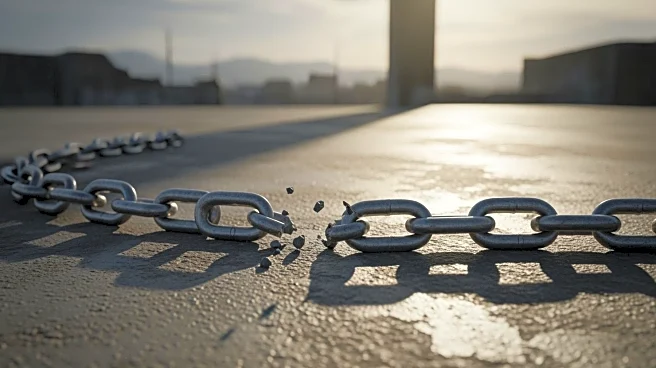What's Happening?
U.S. Secretary of State Marco Rubio visited a U.S.-led command center in Kiryat Gat, overseeing the ceasefire in Gaza. The center, involving multinational troops, aims to facilitate humanitarian aid and establish
a stabilization force. Rubio emphasized the urgency of returning Israeli hostages and ensuring aid delivery without theft. He stressed that Hamas should have no future role in Gaza's security, framing the mission as historic for long-term stability.
Why It's Important?
The U.S.-led initiative underscores the international community's commitment to stabilizing Gaza post-conflict. The focus on humanitarian aid and reconstruction highlights the need for a coordinated response to prevent future hostilities. Rubio's stance against Hamas' involvement reflects broader geopolitical dynamics, where the U.S. seeks to support Israel's security while addressing humanitarian concerns.
What's Next?
The establishment of a stabilization force is a critical next step, with multiple countries expressing interest in participation. The success of this initiative will depend on effective coordination and the exclusion of Hamas from future security arrangements. The U.S. will likely continue to play a central role in diplomatic efforts to ensure compliance with ceasefire agreements and support reconstruction efforts.
Beyond the Headlines
The situation in Gaza presents ethical and humanitarian challenges, particularly regarding the treatment of hostages and the delivery of aid. The exclusion of Hamas raises questions about governance and representation in Gaza, potentially impacting future peace negotiations. The international community's response will be crucial in shaping the region's political landscape and addressing long-standing grievances.











